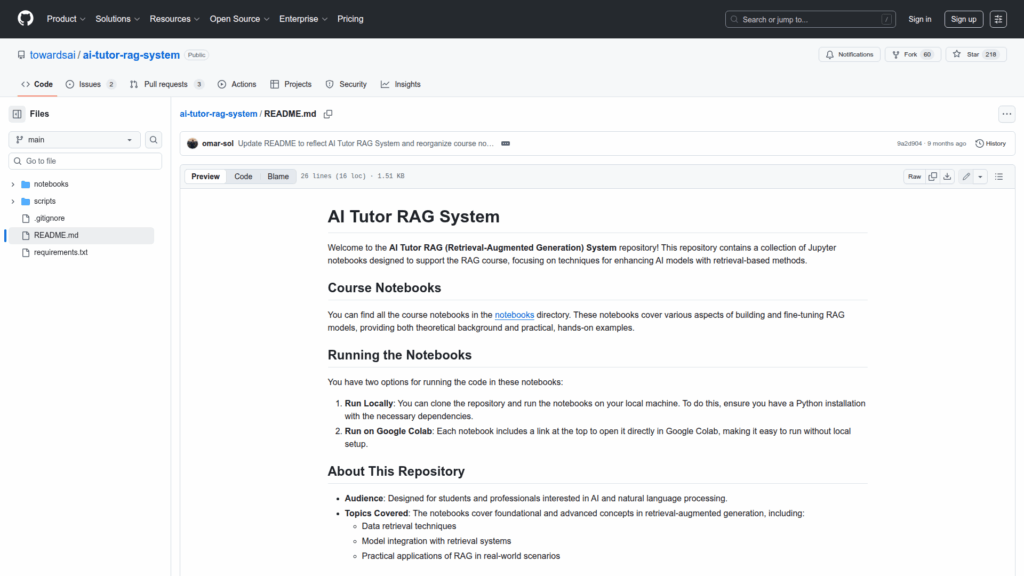ai-tutor-rag-system
Basic Information
This repository is a collection of Jupyter notebooks that make up the AI Tutor RAG (Retrieval-Augmented Generation) System and serve as course material for learning RAG techniques. It is intended for students and professionals who want practical and theoretical instruction on how to enhance language models with retrieval components. The notebooks live in the notebooks directory and include guided examples demonstrating data retrieval methods, integration of retrieval systems with models, and applied RAG workflows. The README explains two execution options: cloning and running locally with a Python environment, or opening individual notebooks in Google Colab via provided links. The material emphasizes step-by-step learning and covers both foundational concepts and advanced practices related to building and fine-tuning RAG-enabled models.








